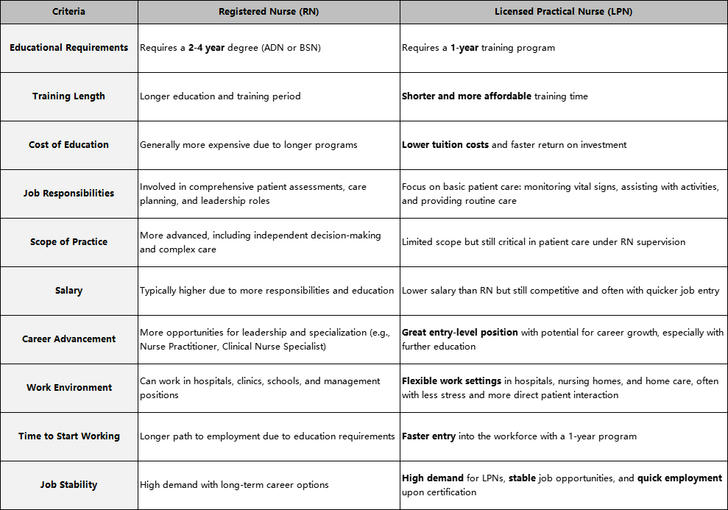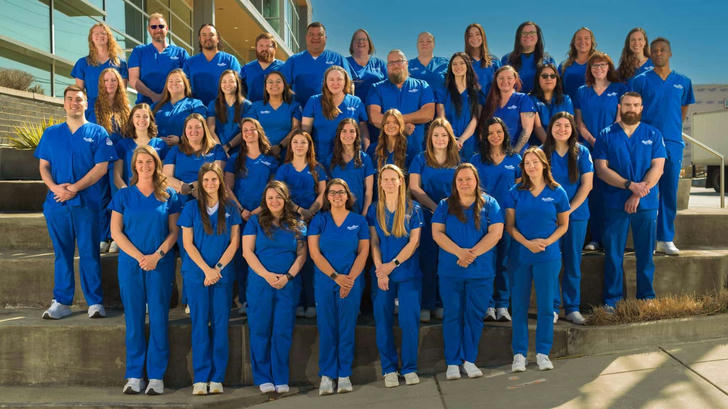Why We Need Responsible Nurses and How We Can Support Aspiring Nurses
Recently, there’s been a hot topic about 'What’s the Most Astonishing Secret You Know?' I’ve read lots of mind-blowing stories that I never thought would happen, but the most unsettling and thought-provoking one is this:

A user named odoyle321 shared a story:
“My wife is a CNA in a nursing home. She had a resident who was formally a delivery (OB) nurse in the 70s and 80s. When she was on her last few breaths, my wife was leaning in to her face to clean it, and she whispered in my wife's ear, ‘When I was a nurse, l switched babies around.’
I'm not sure what's worse, knowing that one child may not be your child, or that this woman could have done it MANY times.”
I can’t even imagine the emotional devastation parents would experience if they found out that the child they’ve poured their heart and love into might not be their biological child, while their own child could have ended up in a less-than-ideal environment with no one to care for them.
This heartbreaking story reminds us just how important it is to have responsible nurses. Unfortunately, while nursing exams test clinical skills, they don’t measure qualities like a nurse’s moral character or sense of responsibility—qualities that are just as crucial when it comes to keeping patients safe and well cared for.
So, the real question is: What can we do to support nurses who are not only skilled but also responsible and empathetic? And how can we help those with the right qualities enter the profession without facing a huge financial burden?
Understanding the Roles of Registered Nurses (RNs) and Licensed Practical Nurses (LPNs)

In America, there are two primary types of nurses: Registered Nurses (RNs) and Licensed Practical Nurses (LPNs). Below is a comparison of these two roles:

Why LPNs Are a Great Choice:
LPNs can enter the nursing field quickly with a shorter, more affordable training program. While they don’t have the same scope of practice as RNs, they still make a significant impact on patient care, and the career offers job stability and plenty of room for growth.
How We Can Support Aspiring Nurses
For those who are passionate about nursing but concerned about the cost of education, the good news is that there are several programs offering free or low-cost LPN courses. These programs are designed to make nursing education more accessible and give people the chance to start a rewarding career in healthcare.

A. Basic Requirements for Free LPN Courses
If you're interested in applying for free LPN courses, here are the general requirements:
1.Educational Background: Applicants must have a high school diploma or an equivalent qualification (e.g., GED) to ensure they have the foundational knowledge needed for the program.
2.Age Requirement: Most programs require applicants to be at least 18 years old.
3.Health Certification: A health exam is often required to confirm the applicant is physically fit for nursing work, ensuring they are able to perform the essential duties of the role.
4.Background Check: Given the nature of nursing work, which involves patient safety, many programs require a background check to ensure applicants have no criminal record and adhere to professional ethics.
5.Language Proficiency: Good communication skills in English are essential, both for understanding course material and for interacting with patients.
B. Institutions Offering Free LPN Courses
There are several types of institutions that offer free LPN training to help reduce the financial burden:
1.Government Funding Programs: Some state or local government programs offer financial aid to help individuals facing financial challenges complete LPN courses. These programs are often part of public health or vocational training initiatives.
2.Community Colleges and Vocational Schools: Certain community colleges and vocational schools offer free LPN courses through scholarships, grants, or financial aid programs. These institutions often collaborate with local healthcare facilities to provide valuable training opportunities.
3.Hospitals and Healthcare Institutions: Many hospitals and long-term care facilities offer paid training programs where students receive free training in exchange for working at the institution for a specified period. This not only covers training costs but also provides valuable work experience.
4.Non-Profit Organizations: Some non-profit organizations provide free LPN training through government grants or charitable funds. These organizations are dedicated to improving community healthcare and supporting individuals entering the nursing field.
5.Nursing Training Programs: Certain regions may have state or federally funded nursing training programs specifically designed to support individuals aspiring to become LPNs by providing necessary financial support.
C. Steps to Apply for Free LPN Courses
If you're interested in applying for free LPN courses, here are the typical steps:
1.Research and Select Courses: Look for institutions offering free LPN courses and compare their requirements, course content, and application deadlines.
2.Complete the Application Form: Fill out the application with your personal information, education background, and any other necessary details. Make sure everything is accurate.
3.Submit Required Documents: Most programs will ask for documents like your high school diploma or GED, health exam reports, background check, and sometimes recommendation letters.
4.Attend Entrance Exams or Interviews: Some institutions may require you to take an entrance exam or attend an interview. Be sure to prepare and present your best self.
5.Apply for Financial Aid or Scholarships: If the program isn't entirely free, look for scholarships or other financial aid to reduce the cost of tuition.
6.Await Admission Decision: After submitting everything, wait to hear back. If you're accepted, follow the institution's instructions to get ready for the program.

D.How to Apply for Scholarships or Financial Aid
Here's how you can apply for scholarships or financial aid to help with your LPN course:
1. Research Scholarships and Funding Opportunities: Look for scholarships or funding opportunities related to LPN courses, including government grants, school-based scholarships, non-profit organizations, and private foundations.
2. Confirm Eligibility Requirements: Carefully review the eligibility criteria for each scholarship or funding program to ensure you meet the requirements, such as academic performance, financial need, or experience in the healthcare field.
3. Prepare Application Materials:
• Personal Statement: Write a detailed personal statement outlining your background, motivation for applying, and career goals.
• Recommendation Letters: Request recommendation letters from teachers, employers, or other professional contacts who can vouch for your abilities and potential.
• Financial Documents: Provide proof of family income, tax records, and other documents to demonstrate financial need.
• Academic Transcripts: Submit transcripts from high school or other relevant educational institutions to showcase your academic performance.
4. Submit Applications on Time: Ensure that all application materials are submitted by the scholarship or funding program's deadlines to avoid missing out on opportunities.
5. Follow Up on Application Status: After submitting your applications, regularly check for updates on the status of your applications and ensure that no required documents are missing.
6. Apply for Multiple Funding Sources: Increase your chances of receiving financial aid by applying for multiple scholarships or funding programs. This helps ensure that you have sufficient support to cover the cost of the LPN course.
Conclusion
Becoming an LPN can be a highly rewarding and accessible path for individuals passionate about healthcare. It offers a faster, more affordable way to enter the nursing profession while still providing opportunities for career growth and advancement. By supporting programs that make nursing education more accessible, we can help create a new generation of responsible, empathetic nurses who will make a lasting impact on patient care.
